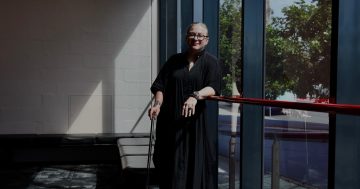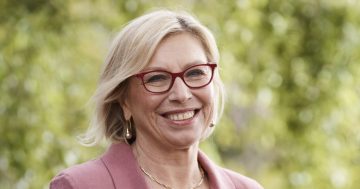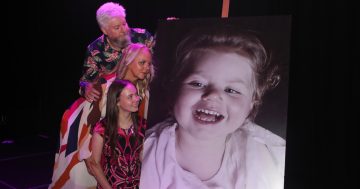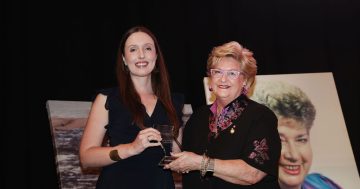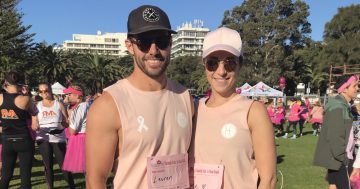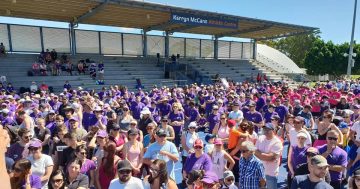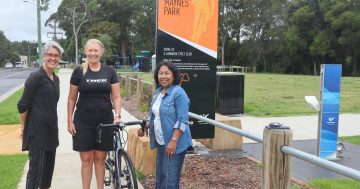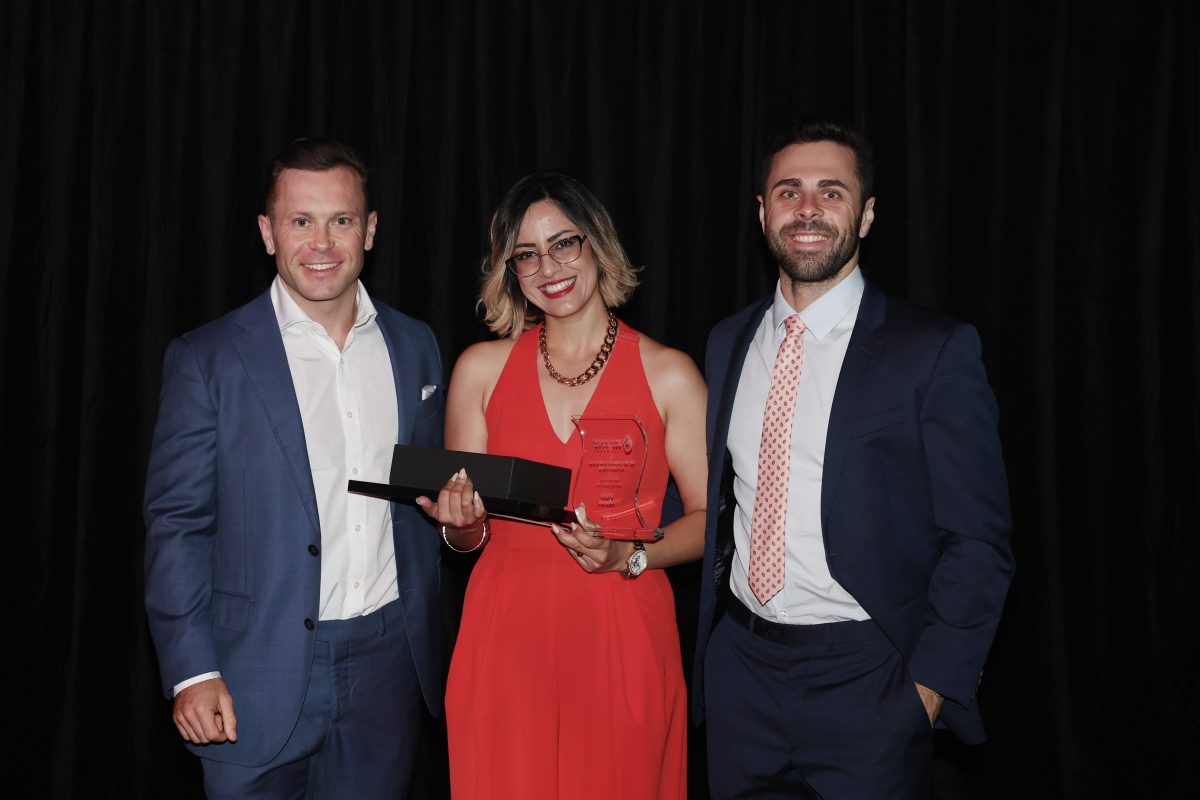
IWD medical research scholarship recipient Elahe Minaei with Dr Margaret Gardiner’s sons Gerald and Dominic. Photo: Illawarra IWD Committee.
A scientific mind wasn’t exactly rewarded in Elahe Minaei’s home country, Iran, but her adopted home in the Illawarra has welcomed her talents with open arms.
Elahe is the recipient of this year’s Dr Margaret Gardiner Illawarra International Women’s Day Scholarship for Medical Research, and it might help her find a cure for one of the deadliest forms of cancer.
Elahe completed her Masters in Immunology in Iran.
Her parents and siblings supported her ambitions, but in the labs it was a different story.
“The education was good – the environment was really bad,” she said.
“I was getting warnings about what I was wearing most days; the focus was on if I was going to mosque, or that I laughed too loudly.
“The lab was dominated by men – my supervisor was a man, the research assistant was a man; they were very unfriendly and if they were friendly it came with other expectations; I did not like to be treated like that, so I was disadvantaged by them.
“If it wasn’t for my family I would have quit. I’m very thankful for them.”
After completing her masters Elahe got married and moved to Australia with her husband, who was undertaking his PhD at the University of NSW.
She spent eight years working as a research assistant before taking maternity leave.
The time away inspired her to pursue her PhD – a revolutionary new treatment for pancreatic cancer.
“I’ve lost some very dear people to cancer, and pancreatic cancer has the worst prognosis of all cancers,” she said.
“The life expectancy after diagnosis hasn’t changed in decades, because it’s challenging to treat through systemic delivery of drugs, which is what we currently do.
“I’m developing small implantable, biodegradable, biocompatible devices. They can be loaded with chemotherapy and immunotherapy and inserted where the tumour is.”
Elahe is still trialling the concept on mice, but she’s hopeful the localised delivery of medication will help improve response rates for sufferers.
Her experience in the lab is a significant improvement on her previous studies.
Undertaking a PhD and having a baby are significant challenges at the best of times, more so without the support of extended family.
Elahe said despite that, the environment at the University of Wollongong made her studies manageable.
“My supervisors are women and they’ve been very understanding around childhood illness and things like that,” she said.
“My husband and I try to divide the workload so we can both get ahead. You adapt to motherhood; it’s not impossible; it’s a matter of having the right people around you.”
That support was crucial over the past 18 months, after the ‘Woman, Life, Freedom’ protest movement kicked off in Iran in response to the death of Mahsa Amini in September 2022.
Elahe said she felt helpless, and worried for her friends and parents in Iran.
“It reminded me of all the bad memories and I felt I wasn’t doing much by living here; I can’t be involved in the movement,” she said.
“I felt embarrassed.
“To receive the scholarship, it felt like I’m doing something as an Iranian woman, it was very encouraging.
“It meant a lot to have my work recognised by the committee; it’s an incentive to work more.
“Finding an answer for cancer was personal already, now it’s even more important for me to do something about it.”









